
Serving as director at Scrivens Opticians & Hearing Care might seem like an inevitable calling for Mark Georgevic, who celebrated 25 years at the company this year. After all, the company was set up by his grandfather and further developed under his father. However, for the first act of his working life, Georgevic pursued a career in law.
‘I worked as a solicitor for a large firm in London for several years and was actually working as a corporate lawyer in Bermuda when my father told me he wanted me to come back and join Scrivens,’ says Georgevic. ‘He didn’t think there was a full-time role for a lawyer though so he asked me to learn more about the business and qualify as a hearing aid dispenser. That was in 1993 and I moved back to the UK. To be honest, I was quite apprehensive because my science was never brilliant, but I qualified in 1996 after completing a chunk of pre-reg training in addition to passing practical exams.’
Georgevic was no stranger to Scrivens practices, having done summer work since he was a boy but was still taken aback by the rewarding nature of hearing work.
‘Until I started to put hearing aids on people, I didn’t realise how amazing these products that we were selling actually were. The restoration of quality of life with individuals being able to hear their grandchildren speak for the first time or hearing birdsong again; all those high frequency sounds that are gradually lost. It was quite a miraculous experience for me to be involved in.’
Since qualifying, Georgevic has focused on the audiology side of the business, joining and serving on the Hearing Aid Council, the British Society of Hearing Aid Audiologists and most recently the National Community Hearing Association.
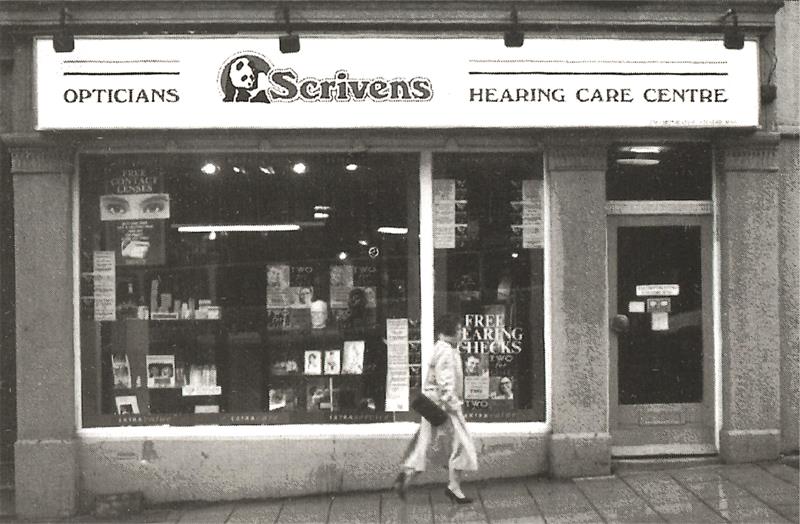 Sheffield branch
Sheffield branch
‘I became involved in trying to understand where private hearing care business fitted both from professional standards and a regulatory perspective. The Hearing Aid Council was formed by the Department of Trade and Industry and deregulated the retail supply of hearing aids. So, it was important that a company of our size was represented and I was very much involved in the regulation of hearing aids in the UK. For a time, I ran the code of practice committee which provides the bedrock on how hearing aid dispensers were meant to go about their daily work. I was on the Hearing Aid Council until it essentially self-abolished in 2010 and joined the National Community Hearing Association soon after. I think all of this enabled me to have a far better understanding of the world in which Scrivens operates.’
Pharmaceutical origins
The origins of the Scrivens chain can be traced back to 1938, when Solomon Scriven, Georgevic’s grandfather, opened a pharmacy business in Ward End, Birmingham. The pharmacy was rapidly converted into an optical enterprise and its first optical store, complete with glazing lab upstairs, was opened in a more central location in Paradise Street. Expansion, fuelled by the advent of free sight tests in 1948, and the establishment of a dual purpose with audiology followed.
‘At that stage optics wasn’t as well developed on the retail front; it’s quite difficult to imagine the kind of trading conditions. As the years went by, my grandfather, in a move I would describe as visionary, made the realisation that sight and sound services would complement each other and decided to incorporate private hearing aid services into the business. Our first hearing aid was dispensed in 1958 and the company moved to new premises soon after to host the necessary stock control and payment schemes.’
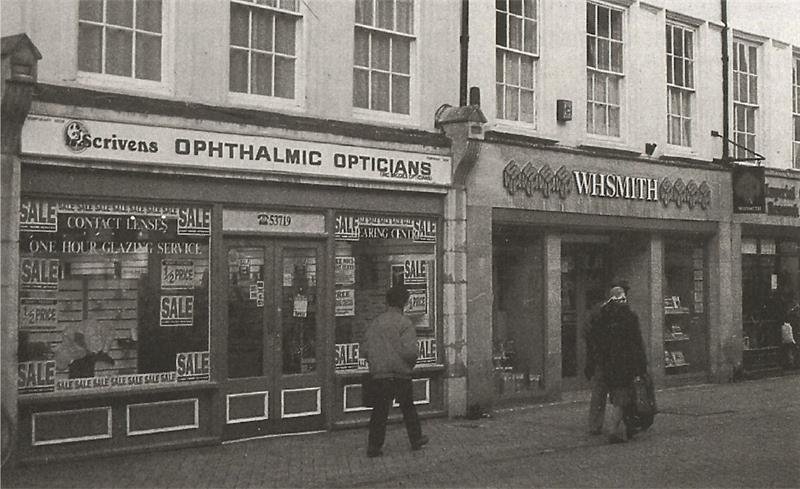 Stamford branch
Stamford branch
Since then audiology has become increasingly central to the Scrivens business and a lot has changed along the way.
‘Over time the optical and hearing components have become more and more integrated within the wider business. Today I would suggest that our practices and staff are equally adept at providing a patient focused hearing or optical service.’
Georgevic points out that hearing, similar to sight, is very important in maintaining robust health, particularly in an aging population.
‘Today we are all aware of the link between loss of hearing and withdrawal from social participation leading to depression and potentially dementia. As a business we are keen to be involved in early diagnosis through screening for hearing loss and trying to address that drop-in quality of life that people suffer. The human cost of someone living with depression and the associated problems that brings also has a significant financial cost to the public purse.’
Perception change
Importantly for Georgevic, hearing aids have evolved in recent years into sleek electronic devices that make it much easier for hearing-impaired people of all ages to commit to use.
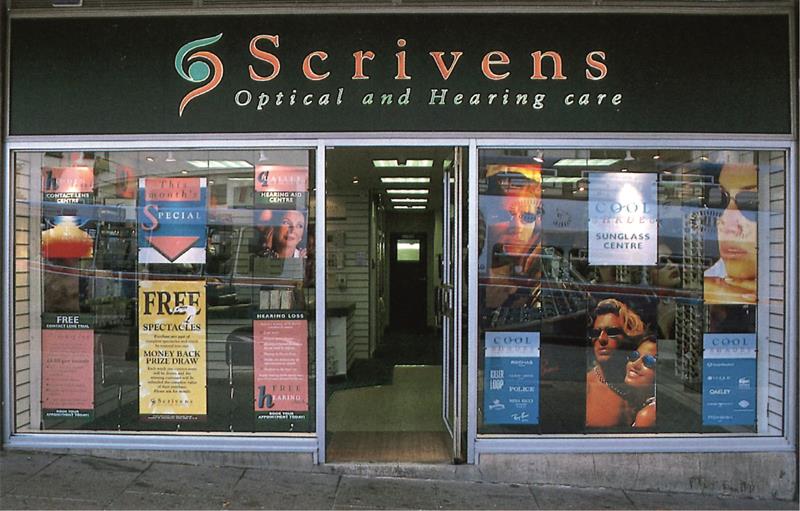 Wolverhampton branch
Wolverhampton branch
‘Hearing aids used to be a sign of aging so people didn’t want to wear them, but modern models are wireless and can stream telephone calls, music and radio – they are wonderful devices. There’s also been some convergence from society in that on every high street these days you will see people wearing wireless headphones. I think people are happy to wear hearing aids these days because they are now devices that enable rather than disable and that’s a very exciting development. The average age of people wearing hearing aids is coming down.’
Georgevic speculates that another factor in greater uptake for hearing aids may be that hearing care services are increasingly being delivered in the community, rather than a potentially off-putting hospital environment with associations of ill health. This move to community-based provision is something that Scrivens and Georgevic have been at the forefront of.
‘The big step forward came in 2012 when the Department of Health prioritised hearing services to use the Any Qualified Provider (AQP) approach. Scrivens was accredited as an NHS AQP provider in October of that year. I think – if you look at the documentation, the monitor reports, the NHS action plan, the NHS Commissioning framework – what the government did by introducing more of a community NHS service has been good for patients.’
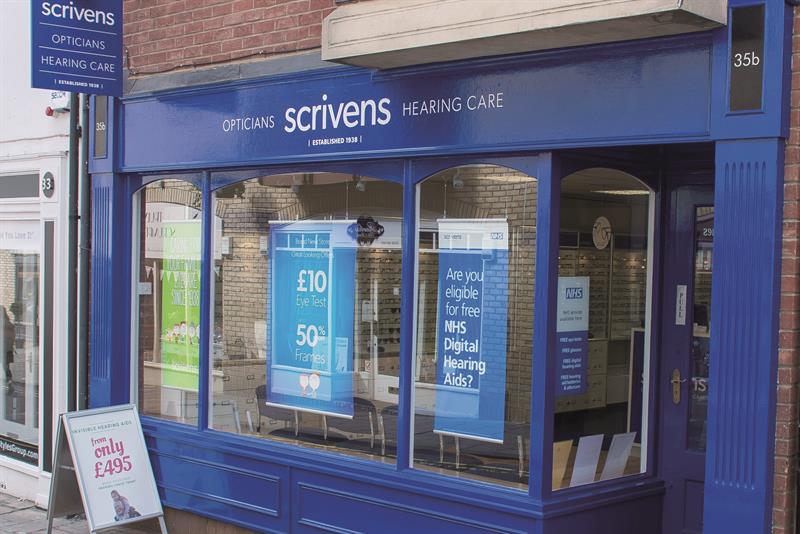 Modern day branch
Modern day branch
Georgevic highlights accessible after care as an important patient advantage for services provided within a community setting.
‘A hearing aid is not an instant solution, you need to provide good quality after care as a service to ensure the hearing aid is worn. It can take some time for someone to familiarise their brain and nerves to using an aid. An individual with a hearing aid that isn’t quite working for them for whatever reason can easily access our service while doing their weekly shopping and get a few extra tweaks to unlock the maximum benefits. It’s so easy to pop into a store and to be able to access that service six to seven days a week. It is all about outcomes and I’m very proud of the wear rates that our staff have achieved.’
The high standard of care provided and attendant commercial success lead to internal and external recognition during 2013. First, the company underwent a corporate name change to Scrivens Opticians and Hearing Care in recognition of the equal role played by hearing care. Later in the year Scrivens became the first high street multi-sited retailer to be awarded Improving Quality in Physiological Services (IQIPS) accreditation having been assessed in four key areas; patient experience, safety, facilities, resource and workforce and clinical.
Rapid expansion
In the years since, Scrivens has gone on to become the second largest provider of NHS hearing care, working with more than 100 Clinical Commissioning Groups across the UK.
‘We’ve had a major expansion of services with significant growth,’ says Georgevic. ‘We have over 400 sites, ranging from our own practices to medical clinics, delivering hearing care services. I think the fact that we are able to offer NHS hearing care has really enabled our staff to have a far more detailed understanding of the similarity between optics and hearing, and, as a result, we have become a truly integrated business. The footfall increase that we’ve had as a result of NHS hearing care, has enabled growth, both from a hearing care perspective and from an optical perspective.’
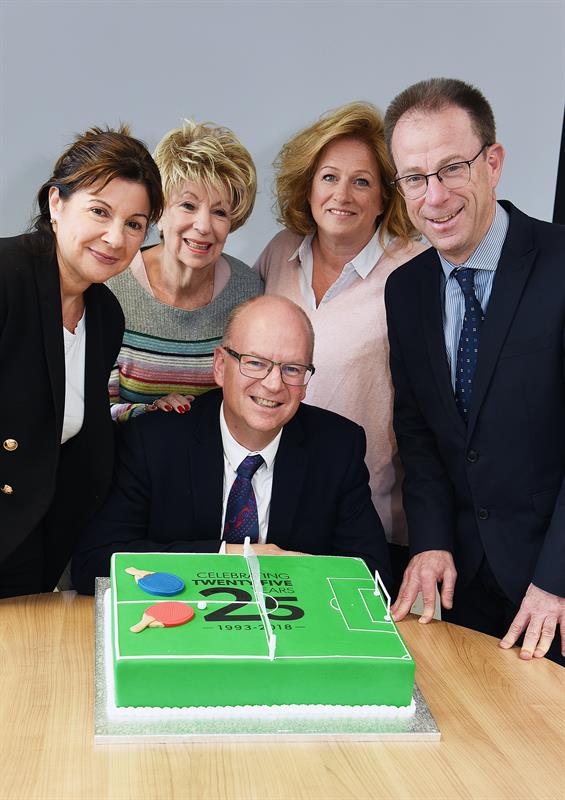
Looking back on a remarkable past few years, Georgevic returns back to the previous generations of his family that have made this success possible.
‘Myself and my brother Nicholas [chairman at Scrivens Opticians & Hearing Care] are hugely proud of what our grandfather, father and other relatives did in founding the business. For us still to be involved three generations later is very special. I think grandpa would be very proud of where we are now with 180 stores, and to be operating in hundreds of medical centres. I think he would be very pleased with where we’ve taken the business.’
